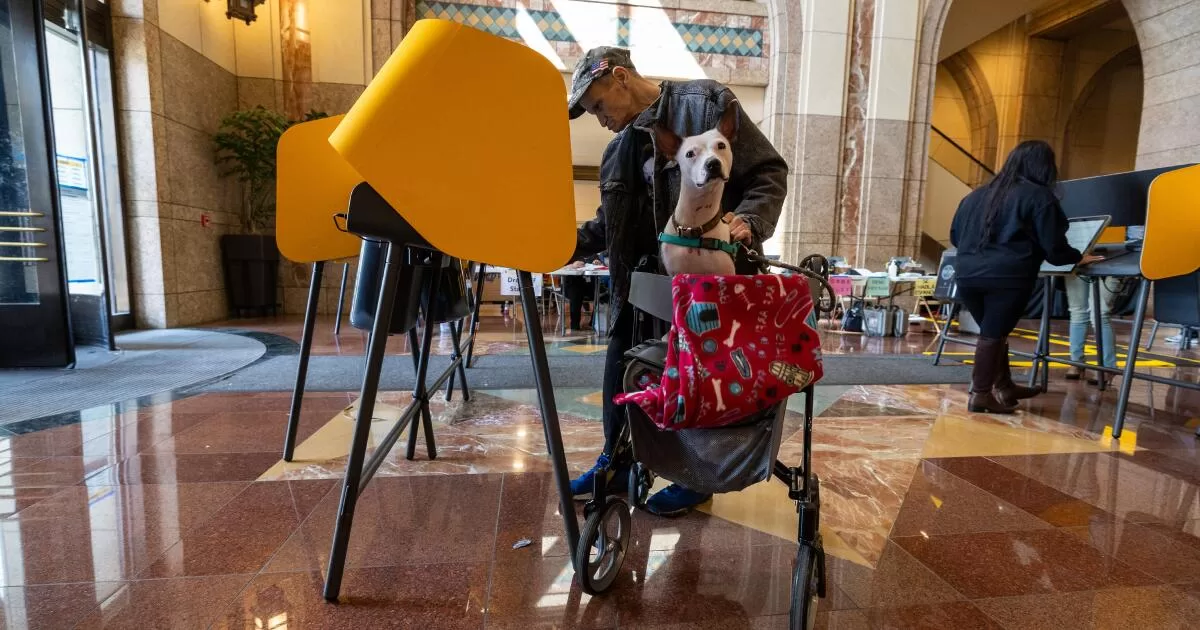For instance, politicians love to talk about unity, but our constitutional system was to set up to keep unity at bay, preferring a more adversarial approach, pitting faction and against faction. Checks and balances, separation of powers and the divided authorities between the federal and state governments are predicated on the idea that unity will be rare and temporary. The Constitution places our most cherished liberties on a high shelf, hard to reach during moments of unifying populist passion.
The rhetorical mismatch doesn’t just apply to the mechanisms of democracy but also to the culture of democracy. Democratic manners demand that politicians never say the voters are wrong. But competitive elections — essential to any workable definition of democracy — require some voters to be “wrong.” I don’t necessarily mean in their policy preferences (though that’s frequently the case), I just mean elections create winners and losers. And yet, winning politicians, with barely half of the electorate on their side, routinely declare that the “America people have spoken” after every victory.
More to the point, voters are often simply wrong about basic facts going into an election. For instance, the Biden campaign is struggling with an electorate that believes the economy is far worse than it is. To be clear, I didn’t say they the economy is good, though that argument can be made. No, President Biden is struggling to convince the electorate that the economy isn’t the worst ever.
A recent YouGov survey asked voters to say which decade, starting in the 1930s, had the worst economy. A third (32%) said the 2020s, our current decade, is the worst, worse even than the 1930s or 1970s. Only 23% said the ’30s and a mere 5% named the ’70s as the worst. This is, by any objective measure, wrong, spectacularly wrong.
Now, there’s a lot of partisan bias at work here. Only 19% of Democrats said ours is the worst decade and 24% did say the 1930s were, but 45% of Republicans believe the 2020s are the worst. Still, when nearly 1 in 5 Democrats wrongly believe things are worse than during the Great Depression, Democrats have got a problem.
This is merely one facet of Biden’s “vibes” problem. Large numbers of Americans (42%) think the 2020s are the worst decade for crime, which is just wrong. Twenty-eight percent think the 1940s — World War II, duh — had the “most war.” Only 4% named the 1970s and 6% cited the 2000s — when America fought, respectively, the Vietnam war and invaded Iraq and Afghanistan. But 19% said the current decade had the “most war” — and we’re not at war, though events in Ukraine and Gaza do make the times seem bellicose. From scientific breakthroughs to family unhappiness to racial inequality, lots of Americans just think things have never been worse.
Now, subjectively, there are perfectly valid arguments that things are not going well or that they can or should be going better. But we’re talking about objective judgments here, and objectively huge numbers of Americans are objectively wrong. And in fairness to them, I suspect many people don’t think they’re making objective judgments. When people say, “I’m having the worst day — or decade — ever!” they’re not necessarily being literal. They’re making a vibes declaration.
This is obviously a huge problem for Joe Biden. Thanks in part to the ravages of inflation and high interest rates and in part to his own shortcomings, he can’t change minds about the economy. But the causality works both ways. Economic realities contribute to negative attitudes and negative attitudes shape how the economy is perceived. And on many fronts, particularly race, Biden is fueling those negative attitudes (see his commencement address at Morehouse College).
But that explanation is insufficient. Democracy depends on the promise of incremental, cumulative, progress. James Madison didn’t want polls to be the measure of the voters’ mood, but elections. Which is why we have them constantly, at every level of government. Democracy, for Madison, isn’t about unity or agreement, but about argument and disagreement, and constant self-correction.
Thanks to that vision, we’ve made enormous strides. But now, both parties wallow in catastrophism and presentism. Donald Trump — who has the historical memory of a goldfish — falsely screeches that things have never been worse. Yet as cartoonish as his rhetoric is, he’s making a right-wing version of a common left-wing argument. Indeed, every four years, partisans insist that this is the “most important election ever” and that catastrophe or salvation is on the ballot. Relentlessly crying wolf has fueled the mess we’ve found ourselves in, and perhaps the mess to come.
After all, when you constantly tell people we’re in an existential crisis, the vibes can create the reality, whether it’s warranted by the facts or not.
